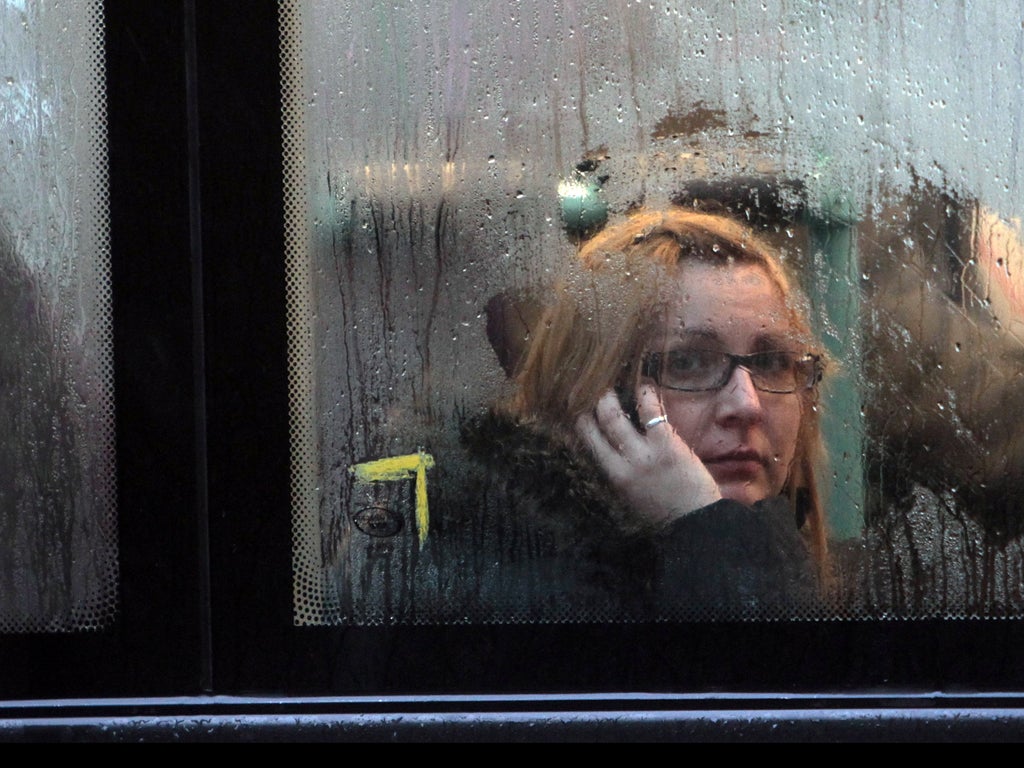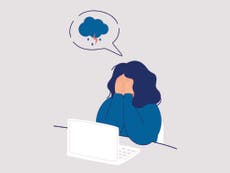Enough of ‘Blue Monday’ in 2022 – this made-up ‘holiday’ continually trivialises depression
The last thing we need is scaremongering about a day that doesn’t actually exist


Your support helps us to tell the story
From reproductive rights to climate change to Big Tech, The Independent is on the ground when the story is developing. Whether it's investigating the financials of Elon Musk's pro-Trump PAC or producing our latest documentary, 'The A Word', which shines a light on the American women fighting for reproductive rights, we know how important it is to parse out the facts from the messaging.
At such a critical moment in US history, we need reporters on the ground. Your donation allows us to keep sending journalists to speak to both sides of the story.
The Independent is trusted by Americans across the entire political spectrum. And unlike many other quality news outlets, we choose not to lock Americans out of our reporting and analysis with paywalls. We believe quality journalism should be available to everyone, paid for by those who can afford it.
Your support makes all the difference.It’s here again, apparently – the bleakest day of the year.
In the midst of a global pandemic, the last thing we need is scaremongering about a Monday so horrible it has a name. Especially when it doesn’t actually exist.
The concept of “Blue Monday” was coined in 2004 by psychologist Cliff Arnall. He claimed that, statistically, the third Monday of January is the most depressing day of the year. His evidence? Bad weather, failed New Year resolutions and foggy memories of Christmas leaving us all in a debt-riddled slump.
It seems to make sense, but scientifically speaking? It’s complete nonsense. It turns out that it was all a marketing ploy – Sky Travel actually hired Arnall to fabricate the concept of “Blue Monday” so they could capitalise on it to sell a summer getaway.
While Arnall has admitted to making it up and urges us to “refute the whole notion”, the damage is already done. Eighteen years have passed, but airlines still won’t let this golden sales opportunity pass them by. It’s the top trending topic on Twitter, and I find myself wading through marketing emails using “Blue Monday” as a tagline.
One email from a British airline asks if I “want to cure my January blues” by booking a holiday. With the pandemic still raging, the grim audacity of it shocks me.
It’s not just PRs who capitalise on a made-up day. A quick Google search reveals reams of news articles, either with an explanation of its origin, or tips on how to ‘beat the blues’ (by buying things you don’t need, of course). Sure, a fair share of the coverage is critical. A campaign by the mental health charity Samaritans last year pushed for a rebrand to “Brew Monday”: a chance to have a chat over a cuppa. People have posted annual reminders that Blue Monday is a lie, and influencers are sharing messages of hope. Whilst it’s refreshing to see attempts to shift the rhetoric, negative coverage still emerges victorious.
The phrase is embedded so deeply in our cultural conscience that whispered fears about its arrival come every year. Last week, my housemate told me they were having a bit of a rough day. “It’s Blue Monday next week, too. Can’t wait to feel even worse than I do now,” they told me with a small chuckle. People understand at some level that Blue Monday is a lie, but psychology is powerful. The question really is – do companies who feed into this frenzy risk tipping people into even deeper despair?
Research shows that months of living in lockdown has already bruised our collective mental health. In the spring of 2020, one in 10 people reported having suicidal thoughts, and a quarter of us reported experiencing at least one mental health problem. People lost their loved ones, their jobs and essential social interaction. This triggered an overwhelming surge in demand for mental health services that continues today.
It seems, therefore, even more vital that in 2022 we put this phrase to bed, for the sake of our collective sanity.
It’s also infuriating to see brands exploiting depression – a debilitating condition I have lived with for over a decade – for the sake of profit. No, a bag of popcorn will not “cure” an illness that leaves me catatonic. Neither will a new lingerie set, brownies, cheese, pork pies, suncream, speakers, a water bottle or – I can’t believe I’m saying this – a carbon monoxide alarm.
Discounts may seem harmless, but conversations around Blue Monday conflate low mood with depression. Yet depression is not simply feeling low from time to time. In my own experience, it decimates my passion for life and sends me into a spiral of self-loathing. Fears of a meaningless day are the last thing I need. Mental ill-health doesn’t subscribe to a calendar, and suggesting that it does is irresponsible. Depression doesn’t care what day it is.
In a 2013 interview with The Telegraph, Arnall admitted that creating Blue Monday became “a self-fulfilling prophecy”, which means we might have a bad day just because we think we’re meant to. So, for 2022, let’s finally kick Blue Monday to the kerb – and refuse to buy into the idea that we can shop our sadness away.



Join our commenting forum
Join thought-provoking conversations, follow other Independent readers and see their replies
Comments